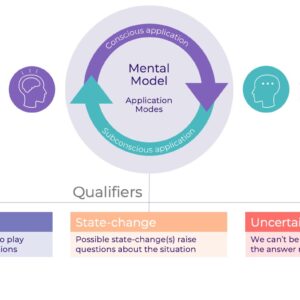How You Will Benefit
Motivated business professionals are looking for every edge to be successful in the workplace. Naturally, many develop expertise in technical or task-oriented skills in order to enhance their careers. However, those who have a high level of awareness and control over their emotions, and use their emotions to connect with others and develop positive relationships, will find even greater success in the workplace.
This soft skill is known as emotional intelligence, and it is an essential element in the business world, especially in high-stress environments. If you are unable to control your emotions, they can preoccupy your thoughts and interfere with your ability to evaluate a situation objectively. On the contrary, knowing what triggers your emotional responses and understanding how to exercise self-control over them enables you to confront difficult issues and manage change with clarity and composure. This program is designed to provide you with the knowledge and tools to develop your emotional intelligence. You’ll learn how to avoid self-sabotaging outcomes by altering how you perceive and respond to emotionally-charged situations. In addition, you’ll improve your ability to resolve conflict constructively, create a productive work environment, build and mend relationships, and bounce back from setbacks and disappointment.
Course Objectives
This course will help you to:
•Manage your emotions by recognizing how thoughts and emotions are connected.
•Improve your self-control by identifying physical cues that indicate your emotions may be taking over.
•Discover how emotional intelligence can help you develop more positive relationships at work and a more optimistic outlook.
•Learn how to use assertive communication to express your needs and feelings appropriately.
•Explore how to use emotional intelligence to bounce back from setbacks.
Key Topics Covered
This course explores the following subjects in-depth:
•How to develop your self-awareness by discovering how thoughts drive feelings and recognizing your physical cues that emotions are arising.
•Learning to prevent emotional-hijacking by using techniques for collecting your thoughts.
•How to develop more positive relationships with others at work through empathy.
•Improving communication by building assertiveness skills.
•Using your emotions as a tool to improve the process of conflict resolution.
•Responding more quickly and positively to changing priorities and situations.
•Keeping your composure and staying focused in stressful or high-pressure situations.
•How to reframe thinking, change perspective, and bounce back from setbacks.
What the Course Offers
•Interactive learning setting
•Opportunity to apply the concepts in a risk-free environment
•Thorough set of materials: Instructor Guide, Participant Guide, classroom PowerPointpresentation, and one-page Learning Summary






